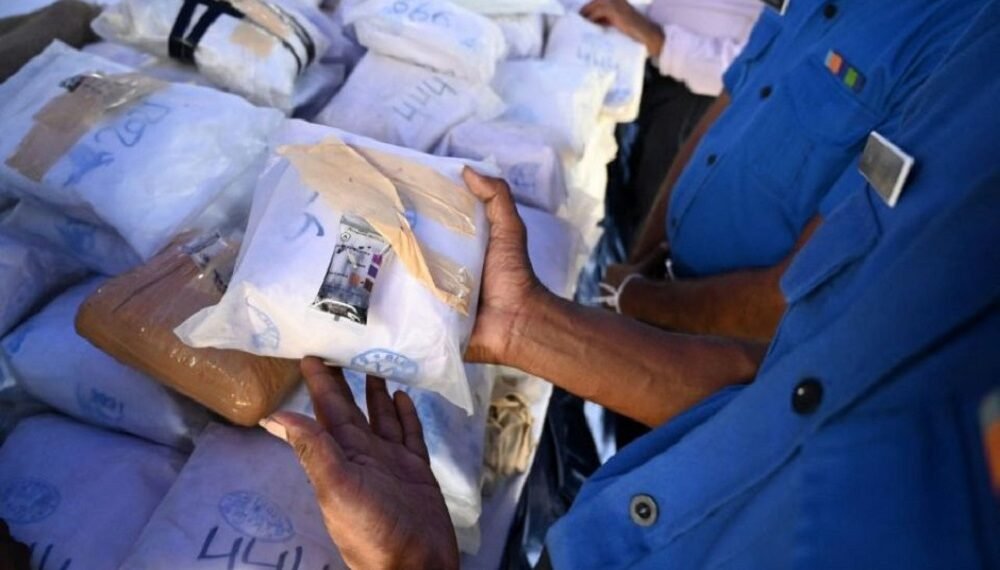A 50-year-old Indian citizen was sentenced under Bhutan’s strict anti-drug laws after customs officials discovered heroin concealed in his suitcase.
BY PC Bureau
Paro District Court has sentenced a 50-year-old Indian citizen, Thanil Wahengbam, to 15 years in prison for smuggling 4.610 kilograms of heroin into Bhutan. The judgment follows his arrest at Paro International Airport on December 22, 2024.
This case marks one of the largest heroin seizures at the airport in recent years.
Wahengbam was convicted under Section 139(1) of the Narcotic Drugs, Psychotropic Substances and Substance Abuse Act of Bhutan 2015, which defines illicit trafficking as a criminal offense. The Act states that possession or import of any substance listed under Schedule I—heroin being among them—is punishable, regardless of whether the accused knew the contents.
The amount recovered far exceeded the legal threshold. Under Section 140(1) of the Act, trafficking quantities more than twice the threshold listed in Schedule VII constitutes a first-degree felony. For heroin, the limit is just two grams; Wahengbam was found carrying 4.610 kilograms.
MUST READ: Exclusive: MHA Pushes for NH-2 Normalcy; Kuki-Zo CSOs Cautious
Accordingly, the court imposed a 15-year prison sentence under Section 140(1) of the Narcotic Drugs Act and Section 8 of the Penal Code of Bhutan, 2024.
Thanil Wahengbam Meitei, a 50 year old Transnational Drug Trafficker from Manipur was sentenced to 15 years in Bhutan prison for smuggling 4.610 kilograms of Heroin (No.4) from Laos (Golden Triangle) into Bhutan by the Paro Dzongkhag Court. The verdict was delivered on 4th June… pic.twitter.com/THCvWphm32
— J Shakur (@JShakurB) July 25, 2025
Court’s Findings
The Bhutan Food and Drug Regulatory Authority (BFDA) confirmed that the substance was heroin, a Schedule I narcotic with no medical use. Wahengbam claimed he was unaware of the contents of the suitcase, stating he had traveled to Laos on December 16, 2024, to process employment documents through his employer, Samson Kanu. According to Wahengbam, Kanu handed him the black suitcase on December 21, asking him to deliver it to someone in Bhutan as a gift parcel.
However, the court held that intent or knowledge is not a necessary condition for conviction under Section 139(1). The act of possessing and importing a controlled substance alone is sufficient. Since Wahengbam had physical control of the suitcase and personally brought it into Bhutan, both elements of the offense were established.
READ: Arambai Tenggol Goes from Armoury Raids to Immigration Patrols
Further investigations showed that all of Wahengbam’s travel—from Bagdogra (India) to Laos, then to Bangkok and finally Bhutan—was financed by his alleged employer. He also admitted to receiving USD 400 from Kanu along with the suitcase.
The court noted that a reasonable person would have questioned such an unusual, all-expenses-paid travel arrangement, especially from someone known only via email. It concluded that Wahengbam failed to exercise the caution expected of an ordinary individual.
Wahengbam arrived at Paro International Airport from Thailand on December 22, 2024, around 4:55 p.m. He passed through the Green Channel without declaring any items. Acting on suspicion, customs officials scanned his luggage and discovered the heroin concealed in his suitcase.
Despite his claim that he was unaware of the drugs and was merely delivering a parcel on behalf of his employer, the court found sufficient grounds for conviction.













